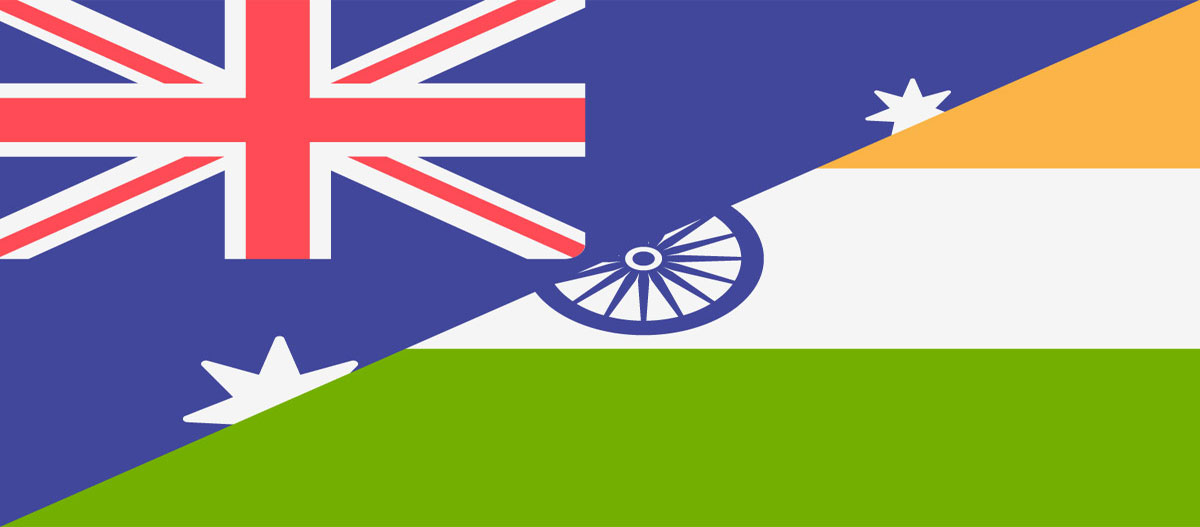The first virtual summit of India's Prime Minister Narendra Modi and Australian Prime Minister Scott Morrison is important from the perspective of strategic cooperation. This will be considered a major milestone in the history of relations between the two countries.
The meeting was virtual, but the conversation between the two Prime Ministers showed a glimpse of deep intimacy. Modi also invited Morrison to visit India after Kovid, which he gladly accepted. This year, Morrison's trip has been postponed twice due to various reasons. This personal touch in the relationship was especially seen by Australian Prime Minister Morrison. The intimacy with which he discusses Indian cuisine and Modi's hug cannot be sidestepped by simply calling it cute. There is also a deep understanding of Morrison's international politics behind it. Both India and Australia are troubled by China's aggressive attitude on different fronts. While India is struggling with China's encroachment on the border, China has started tightening its economic grip on Australia.
However, both countries are happy that US President Donald Trump has invited them to the US to attend the G7 summit. The recent phone-conversation between Trump and Modi also made this meeting between India and Australia more important. Despite all efforts, the relations between India and Australia for the past several years were not as strong as the relations of these countries with Japan and America.

This bilateral relationship was also the weakest link from the perspective of the Quad and Indo-Pacific cooperation. These criticisms will probably come to a halt in the coming months, for which there are many big reasons. During the talks, apart from a comprehensive strategic partnership between India and Australia, an agreement was also announced on maritime cooperation in the Indo-Pacific.
No sharpen on strategic agreement
Tactically, the agreement between India and Australia has been in place for the past several decades, but it did not have the depth and panache as these two countries have in defense and strategic relations with Japan. The implementation of cooperation in defense science and technology related to the “arrangement related to mutual logistics support” and MoU of defense cooperation is expected to go much further in that direction. This will increase defense practice and inter-operability between the armies of the two countries It is a big step. India has a similar agreement with Japan and America. It is clear that in the coming days, Australia will also be a part of India's quadrennial Malabar war-practice. In the last years, India aspired to join Australia's Malabar Has been ignoring because of China.
The virtual summit also saw virtual signatures on the drafts. It is understood by looking at these drafts that why Modi and Morrison did not consider it appropriate to postpone their signing till the covid epidemic is over. Take the framework agreement on cyber and cyber-enabled critical technology cooperation. The importance of this agreement is directly related to the expansion of cyber security and 5G technology in India and Australia. China has an important role in 5G technology. Today, Huawei and other Chinese companies have held more than two-thirds of patents in the field of 5G. Most companies are far behind in this area, except South Korea's Saemsung. Chinese companies are often accused that they have been sharing all the data of customers and countries with the Chinese government, which is completely against international rules. This is the reason that many countries of the world including America, India and Australia are worried about the increasing dominance of China in 5G, cyber enabled and cyber related critical technology.
Cooperation on strategic mineral mining
The two countries also approved an agreement on the mining and processing of strategic minerals. Its importance also increases in the context of China. China is the largest importer of strategic minerals from Australia. In recent times, China has taken financially punitive action against Australia. In contrast to China's desire in the WHO, Australia not only demanded a fair investigation into the origin of the Kovid-19 virus but also requested Taiwan to be included in the WHO. Both these things went mad to China. The agreement with India on the issue of mining of strategic minerals makes it clear that Australia is trying to reduce its dependence by turning its trade from China to the other side. India can be a good importer in this field. Apart from these drafts, agreements for cooperation in the areas of public administration and governance reform, vocational education and training, and water resources management were also approved.
If we keep in mind all these treaties, then it seems that India is moving towards strengthening relations with Australia on the lines of relations with Japan and America. And if this happens, the quadrilateral cooperation between the four countries in a consolidated manner will also materialize. Concerns of both countries about China were clearly seen in the statements of Modi and Morrison. Both leaders emphasized the Rule of Law, transparency in international institutions and adherence to rules, as well as making the Indo-Pacific region ruleful, inclusive and transparent. It is clear that it was towards China. It will be interesting to see how China responds to this virtual meeting and the agreements reached in it.
(Rahul Mishra is Senior Lecturer of International Politics at the Asia-Europe Institute, Universiti Malaya )
Article was first published on DW.com Hindi version
Last Update: 11/11/2021